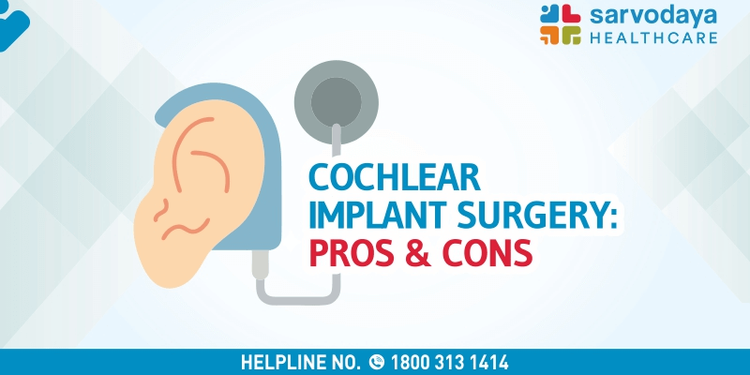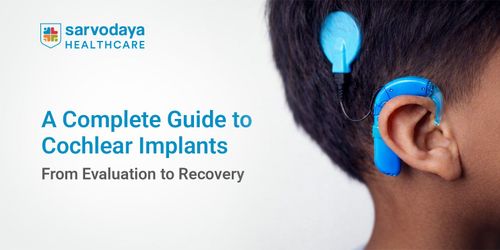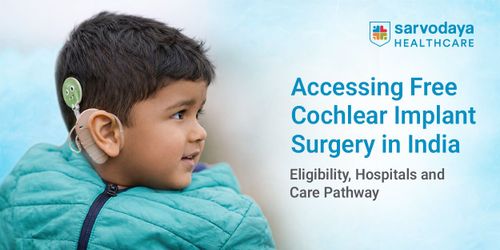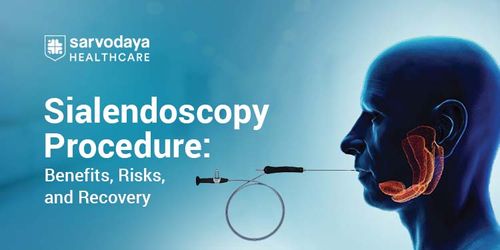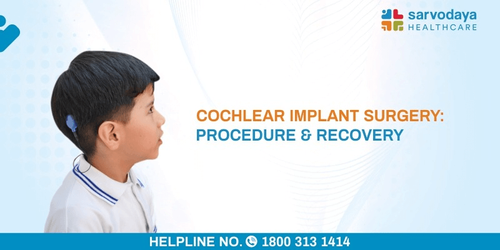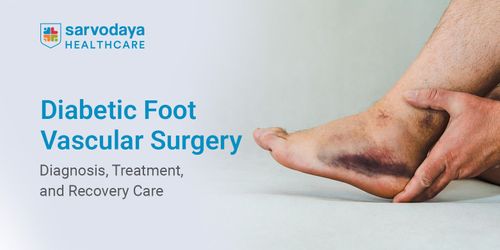Cochlear Implant Surgery is performed to implant a medical device which allows the person who is wearing it, to hear more clearly. The implant processes the audio information so that the wearer can hear clearly. A cochlear implant performs basic functions like any other hearing device, but the sound processing result is very different, highly improved & amplified. Hearing aids work to boost the sound signals while a cochlear implant surgery is done when the ears are too damaged to receive any sound signals.
How Does a Cochlear Implant Work?
Cochlear implant surgery is performed when the vibrational hairs inside the cochlea or inner ear cannot send audio signals to the brain for sound processing, either because they are damaged or injured. The implant works to bypass the outside sound signals over the damaged cochlea while ensuring that they have reached the brain.A Cochlear implant come with an external microphone which receives the audio signals and converts them into digital sound signals. These converted sound signals are then sent to the auditory nerve as electronic impulses, which reach the brain. The brain interprets these impulses as sounds which allows the wearer to hear more clearly.
So, considering cochlear implant surgery as a treatment solution? Well, in that case, it’s important to understand both the advantages and disadvantages associated with this assistive hearing technology.
Pros of a Cochlear implant
- Hearing range and ability to understand speech improves significantly.
- Adult patients often experience the improvement immediately after the surgery and the same continues for the next three-four months during the initial tuning sessions. Thereafter, the improvements continue but the pace gets much slower. However, the users’ performance continues to improve for several years.
- The pace of improvement in children is much slower than adults. Children need a lot of training on how to use the hearing aid after the cochlear implant surgery.
- A Cochlear implant can perceive soft, medium and loud sounds. Patients can even hear slim sounds of footsteps, slamming of doors, rustling of leaves and even the sound of a switch turning off and on can be heard.
- People can also hear telephonic voices or TV sounds easily after a cochlear implant surgery.
Cons of a Cochlear implant
Risks from the surgical procedure
- Facial nerve injury: The facial nerve is the one that goes through the middle ear and gives movement to the face muscles. The facial nerve is very close to the place where the cochlear implant is placed and thus has higher chances to get injured if the ear specialist misses it. Facial nerve injury can weaken the face muscles temporarily or permanently. It may also cause paralysis on the side of the face where the implant is placed.
- Cerebrospinal fluid leakage: This fluid surrounds the brain and a slight miss in the surgical procedure can cause it to leak from a hole created in the inner ear.
- Perilymph fluid leak: The inner ear contains a perilymph fluid, which can leak through the hole created for placing the implant.
- Meningitis: It is a type of infection that occurs in the brain surface lining. This mostly occurs with the people who have abnormally formed inner ear structures.
- Reparative granuloma: In case the body rejects the cochlear implant then this is a type of localized inflammation, which may occur.
- Taste disturbances: The nerve responsible for giving a taste sensation to the tongue goes through the middle ear which has a high chance of getting injured during the cochlear implant surgery.
- Tinnitus: The patient may experience a ringing or buzzing sound in the ear, post the surgery.
- Blood or fluid collection may occur at the site of the implant surgery.
- An infection may occur in the implant wound.
- Numbness around the ear or others.
Risks from using a cochlear implant
- May not be able to go under certain medical examinations which may include:
- MRI imaging as it may dislodge the cochlear implant or demagnetize the internal magnet
- Neurostimulation
- Electroconvulsive Therapy
- Electrical Surgery
- Ionic Radiation Therapy
- One needs to be careful about getting the cochlear implant parts wet. In case of water damage, the implant might need to be replaced. Thus, the user needs to remove the external parts of the cochlear implant while taking a bath, swimming or going inside the water.
- In rare cases, the user may hear strange sounds which might arise due to the interaction with certain magnetic fields.
- One could lose residual hearing. The implant may destroy any remaining hearing in the implanted ear.
- The sound outcomes may differ in people who have had successful outcomes with their cochlear implant.
- In case of infection, the cochlear implant needs to be removed temporarily or permanently.
- The cochlear implant may fail and in that case the patient may need to undergo additional surgeries to resolve this problem.
- Using a cochlear implant makes the user dependent on batteries and needs to recharge batteries every day.
- The user may not hear both soft and loud sounds without changing the implant sensitivity each time.
- The Cochlear implant may cause irritation in external parts of the skin and the user may need to remove it temporarily.
To know more about this treatment procedure, you can consult with our Cochlear Implant & ENT Specialists at Sarvodaya Hospital, Faridabad, who can help tailor the right treatment options for you or your loved ones.


